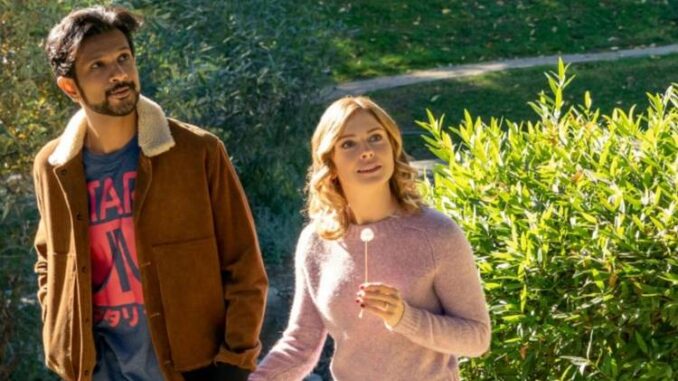
Why Ghosts Season 4 Overlooked The Real Cost of Woodstone Mansion
Ghosts, CBS's delightful supernatural sitcom, operates on a premise brimming with whimsical charm: a young couple, Sam and Jay, inherit a sprawling, decrepit country estate inhabited by a lively ensemble of deceased residents only Sam can see and hear. Season 4, in particular, leaned heavily into the comedic potential of this unique living arrangement, with Sam and Jay attempting to make their B&B a success amidst the chaos of spectral housemates, romantic entanglements, and even a murder mystery. Yet, beneath the laugh-track and the heartwarming found-family dynamics, Season 4—like its predecessors—systematically overlooked the profound, non-monetary "real cost" of calling Woodstone Mansion home, transforming what might be a psychological thriller into a cozy domestic comedy.
The most glaring omission lies in the psychic and emotional toll on Sam. Her ability to communicate with the dead isn't merely a quirky character trait; it’s a constant, unceasing intrusion into her consciousness. Season 4 saw Sam juggling a dozen ghostly personalities, each with their own needs, neuroses, and dramatic storylines. She was, simultaneously, a therapist for Flower's repressed memories, a confidante for Isaac's burgeoning queer romance, a detective in Alberta’s cold case, and a mediator in countless petty squabbles. The show presents these interactions as often humorous inconveniences – a ghost interrupts a date, another offers unsolicited interior design advice. But in reality, this would be a relentless, suffocating burden. Imagine never having a private thought, a moment of true solitude, or a quiet conversation without the disembodied voice of a Revolutionary War soldier or a Viking chief piping up. Sam is never shown suffering from sensory overload, deep fatigue, or the kind of psychological erosion that comes from having her personal space and mental boundaries utterly obliterated. The show frames her as remarkably resilient, a testament to her generous spirit, but in doing so, it sidesteps the true cost of being a living, breathing psychic switchboard for the afterlife.
Jay, the show’s grounded everyman, pays another significant, though largely unacknowledged, price: the cost of his unlived life and eroded normalcy. While Sam actively engages with the supernatural, Jay is merely a bewildered observer, perpetually trying to make sense of Sam’s one-sided conversations and erratic behavior. Season 4 saw Jay pour his life savings and professional dreams into the B&B, an endeavor constantly jeopardized by invisible forces. He gave up a potentially thriving culinary career in the city for a life where he’s forced to believe his wife hears ghosts, a phenomenon he cannot himself verify. The show often depicts Jay’s exasperation for comedic effect – his eye-rolls and bewildered expressions are priceless. However, the emotional weight of constantly feeling like an outsider in his own home, of being unable to share his wife’s most defining experience, and of having his career tied to an unpredictable spectral circus, is rarely explored with the depth it deserves. He lives in a state of perpetual alienation, a silent sacrifice that, in a more realistic portrayal, would breed resentment, exhaustion, or at the very least, a profound sense of loneliness. His steadfast support, while admirable, represents a profound personal cost – the opportunity cost of the life he could have had, unburdened by the supernatural.
Finally, Woodstone Mansion itself represents a colossal historical and ethical burden that Season 4 glossed over. This isn't just a house; it's a living, breathing sarcophagus of human history, a repository of centuries of lives, deaths, and unanswered questions. Sam and Jay are not just homeowners; they are the reluctant custodians of dozens of trapped souls. The season delved into Alberta’s murder, offering a glimpse into the mansion's darker past, but the ongoing responsibility for the ghosts’ well-being, their unresolved issues, and their continued existence as spirits tied to the property, is treated as a given. There's no existential dread, no moral grappling with the concept of their eternal purgatory, nor any profound discussion about the ethics of trying to profit from a home that effectively serves as a holding pen for the deceased. The mansion demands constant attention, not just monetarily for its upkeep, but spiritually. It dictates their lives, their careers, and their social circle in ways few people could ever endure.
Ghosts' Season 4, in its understandable quest for sitcom hilarity and heartwarming moments, expertly navigated the comedic potential of its premise. But by downplaying the profound psychic strain on Sam, the quiet sacrifices of Jay, and the immense ethical and historical weight of Woodstone Mansion, it overlooked the "real cost" that would inevitably accompany such a fantastical existence. This oversight, while perhaps necessary for the show’s lighthearted tone, ultimately transforms what could be a deeply resonant exploration of burden and responsibility into a charming, albeit less complex, tale of spectral cohabitation.